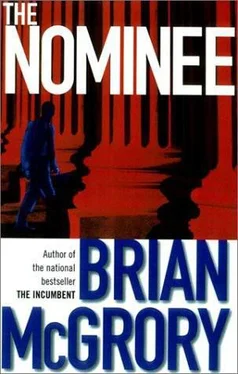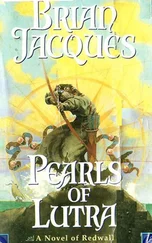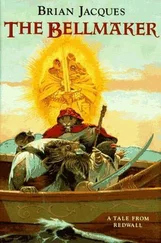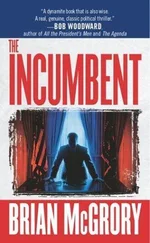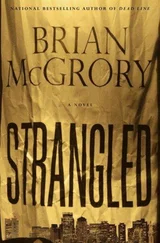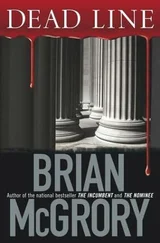I shoved my dirty hand out, and he looked at it for a short moment and shook it. Then we sat on a pair of plastic, KMart-quality lawn chairs around a matching table, and he scanned the headlines.
“Used to read this damned thing every day,” he said to me, slightly amused again. “Now I only see it when someone brings it down for me. I miss the Red Sox.”
“Well, you haven’t missed much these last couple of seasons.”
He didn’t reply.
I said, “I’m going to be honest with you. There are some lingering doubts, suspicions even, at the very highest levels of my newspaper that John Cutter’s death wasn’t from natural causes five years ago.”
I stared into Sweeney’s eyes, and he stared back at me, squinting a bit in the midday sun, which seemed to bother him not a whit. Me, the mud was washing down my face in rising rivers of sweat, which I kept trying to wipe off with my filthy hands.
I continued, “But the paper never asked the questions it probably should have asked back then. It never pushed the investigation as hard as it should have been pushed, maybe out of a fear of appearing too self-serving, of seeking preferential treatment.
“Probably it was a heart attack, but I just wanted to come down here and make sure that’s what you really, truly believed.”
Sweeney sat in silence for a moment, looking at me and then the newspaper clip in front of him.
Finally, he said, “Son, that was the last case of my career, my last day on the job, and probably the most famous victim I ever had. Everyone knew your publisher.”
He paused to pull a pack of cigarettes out of his chest pocket, lit one and took a long, leisurely puff.
“Some people never forget a face. I never forget a crime scene. Sometimes that’s not so good, not when you’ve seen the crimes I’ve seen — blood spattered everywhere, pretty young girls with crushed heads, kids shot dead before they ever made their First Communion, babies burned by their dads.”
That last one seemed to catch him for a moment. “Some dads,” he said, shaking his head and looking down.
He continued, “In this one, I think it was the old man’s housekeeper who found him in the morning. Stop me if I’m wrong here. She called one of the building managers. The building manager called 911, and a uniformed officer was there within about six minutes.
“He looks the place over and it all seems fine, but then he finds out from the manager who the dead guy is and he’s saying to himself, ‘Aw, shit.’” He paused. “Sorry, by the way. I don’t mean to make light of it.”
I shook my head to show I wasn’t offended.
He took another puff, blew the smoke off to the side, and continued. “He realizes that reporters and politicians are going to be crawling up our butts on this one, so he does everything by the book. He seals off the room and he calls for homicide, just in case. It’s exactly what you’re supposed to do in a sudden death. I’m cleaning out my desk and I get a call directly from the commissioner himself telling me to head up the crime scene. I get there, and because of who the victim is, I, in turn, do everything right by the book. I numbered every item in the room. I diagrammed the whole place — damned nice condominium, if I remember right. We photographed extensively. We dusted. And I ordered a battery of tests.
“This is my way of saying, if the M.E.”—medical examiner—“came back and said it was a heart attack, which obviously he did, then it was a heart attack. I supply them information. They’re the ones who make determinations.”
Interesting, but an extraordinarily unsatisfying answer, on multiple levels, so I asked, “Okay, but did you have any reason to believe it was something other than a heart attack?”
“Son, I’m a crotchety old man. Put a duck on the table and I’ll assume it’s a pigeon in disguise. It’s why I don’t mind saying that I was pretty good at what I did for all those years. You have to be that way in homicide. You’re not dealing with the church choir.”
I seemed to remember writing a story once about how a member of a church choir in Chelsea bashed his wife’s skull in, but didn’t see the need to raise that issue just then.
Instead, I asked, “But did you specifically see anything in that room that raised suspicions?”
He looked away at nothing in particular and grimaced, I think, reflectively, though when you’re old, there’s always the possibility that something actually hurts.
He said, “In this case, there were no outward signs of a struggle. There were no visible injuries on the victim. There was nothing obviously disrupted in the apartment. It comes down to what the toxicology tests say. I assume they showed no signs of a narcotic?”
He was asking me. I wanted him to tell me things.
I looked back at him and said squarely, “I don’t know what the toxicology tests say. I assumed you knew. You were the investigating officer.”
“But you’ll remember, that was my last day. I was as surprised as anyone that they gave me the case, knowing I was on the way out the door. Those tests take a couple of days to complete. I was gone by the time they came back, which is why I assume they came back negative and that’s why the M.E. determined it was a heart attack. They had to have come back negative.”
I nodded. “And there was nothing else in that room that bothered you?”
“Well, there was a dead body. That always kind of bothers me.” He had a nice twinkle in his eye, like he was starting to like the company, someone new to hear his old patter.
“Nothing else?”
He grimaced again and shook his head. Was he holding back? Was there some microfiber somewhere on the bed, a pillow out of place, a drop of blood on the kitchen floor? No way to know, not yet. But I would.
We sat in mutual silence for an elongated moment until I decided I had squeezed him for everything I could, at least at this sitting.
I changed the subject. “You don’t mind this heat, huh?” By then, all the mud had washed down my face and onto my neck. He, meanwhile, looked like an ad for Johnson’s Baby Powder, if they used old, overweight actors.
“The heat!” He said this loudly, like I was telling him about it for the first time, like the guy was angry with me.
Then he said, “I hate the fudging heat. But what are you going to do? I’m old. This is Florida. It’s where I belong, I guess.”
I got up and we shook hands. He asked if he could keep the newspaper. “Homesick,” he said. “Mother will want to read the obituaries.”
I asked, “You mind if I call you if something comes up?”
“Go ahead,” he said. Then he looked me over for a long moment and asked in a whimsical tone, “What happened to you?”
I replied, “I was chased into a swamp about fifteen miles back by a guy with a gun who had been following me from the airport.”
He simply shook his head slowly as he looked straight ahead at nothing in particular. He said with a newfound determination, “Call me with the toxicology results.”
And right then, I knew it wasn’t a request, but a challenge. Questions were popping up all around me like August corn on a Nebraska prairie, blocking my clear view, and with it, my perspective. Right then, I knew it wasn’t just a good idea to get those test results, but something I had to do.
AS THE LATE AFTERNOON breeze turned brisk across Boston Harbor, I was somewhere far beyond thrilled to get out of the ill-fitting Wal-Mart khakis and $12 golf shirt I had bought on my way back to the West Palm Beach airport, even more thrilled to get into that cramped houseboat shower to wash the Eau de Florida Swamp off my body and out of my hair. I had sat silently in a middle seat on the USAirways flight back north, the nice gentlemen on either side leaning considerably away from me. They should be entitled to a free round-trip ticket to anywhere in the world, Envoy Class.
Читать дальше
